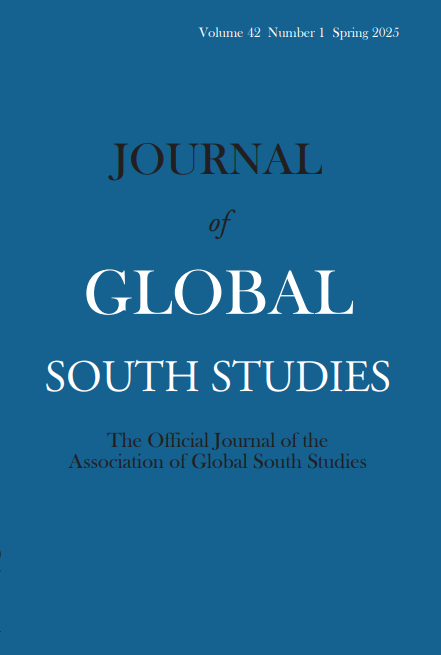“All for One and None for All”? A Regime Theory Reappraisal of South–South Cooperation’s Geopolitical Erosion
Main Article Content
Abstract
In its heyday, South–South Cooperation (SSC) epitomized (among others) geopolitical contestation—from its genesis at the 1955 Bandung conference to the heights of the 1978 Buenos Aires Action Plan. Contemporaneously, SSC has lost much of its geopolitical significance and is instead associated with apoliticality in the form of, inter alia, technical cooperation between Global South states. International development scholars have applied periodization frameworks to rationalize the SSC’s geopolitical erosion, allowing them to pinpoint the glaring exogenous influence of the Global North in diffusing the SSC’s early zeal. This article seeks to complement this thesis albeit by shifting the justification for SSC’s geopolitical erosion away from rationalizations exclusively contingent on the North–South dyad toward one centered on SSC’s own internal institutional dynamics. To do so, the article brings international
relations theory into the fold in the shape of regime theory to argue that this erosion may be as much down to endogenous factors as it is exogenous ones, with absent normative enforcement mechanisms, disparate centers of SSC leadership, and subsequent mistrust among the leading proponents of SSC equally responsible for its sustained geopolitical erosion.

